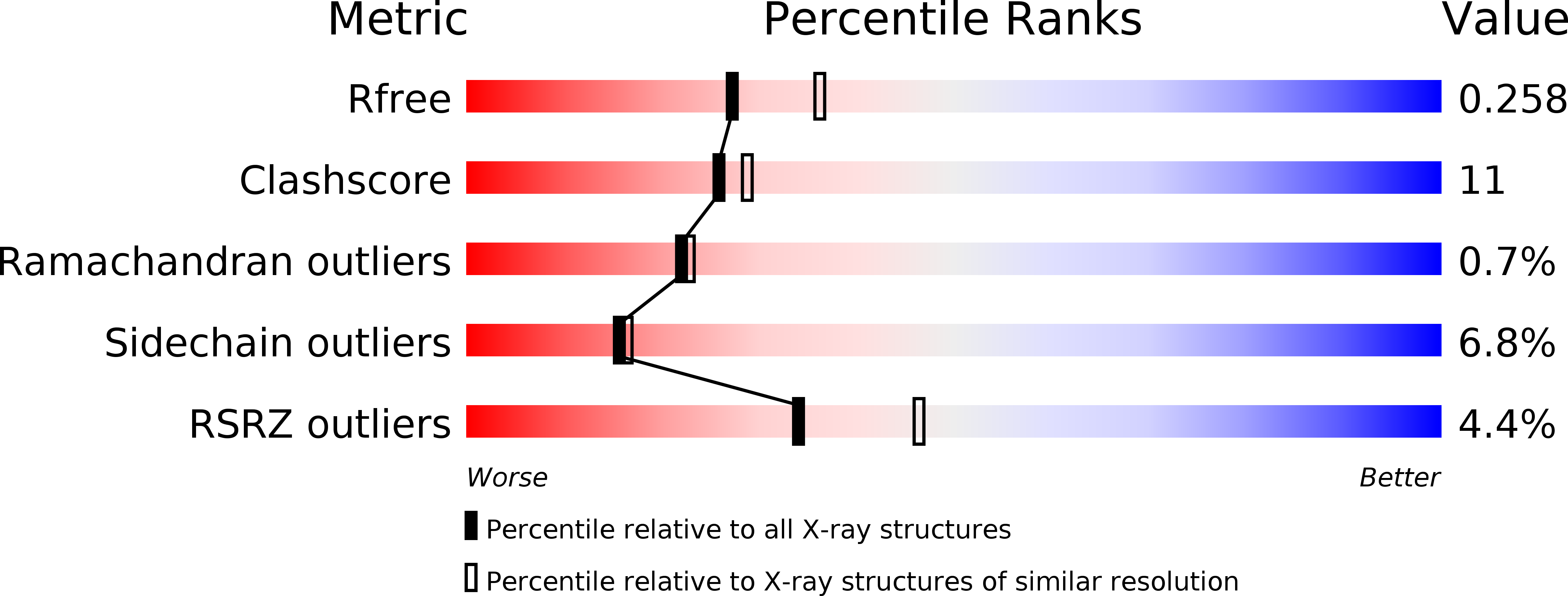
Deposition Date
2015-11-13
Release Date
2016-01-06
Last Version Date
2023-09-27
Entry Detail
PDB ID:
5EQP
Keywords:
Title:
Crystal structure of choline kinase alpha-1 bound by 6-[(4-methyl-1,4-diazepan-1-yl)methyl]quinoline (compound 37)
Biological Source:
Source Organism(s):
Homo sapiens (Taxon ID: 9606)
Expression System(s):
Method Details:
Experimental Method:
Resolution:
2.35 Å
R-Value Free:
0.26
R-Value Work:
0.22
Space Group:
P 21 21 21


